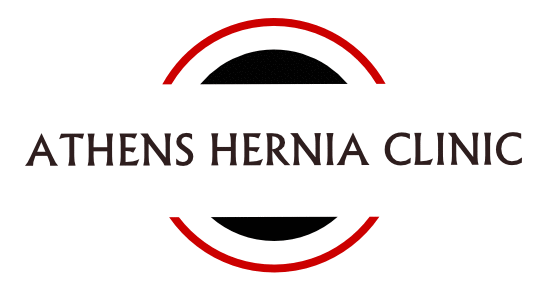INFORMATION FOR PATIENTS
This information sheet tells you how your surgeon’s participation in the Americas Hernia Society Quality Collaborative (AHSQC) aims to improve care for you and many other patients with hernias. The AHSQC is sponsored by the Americas Hernia Society (http://americanherniasociety.org/).
What is the Americas Hernia Society Quality Collaborative (AHSQC)?
-The AHSQC is a large group of surgeons with a specific interest in caring for patients with hernias. This unique group is committed to improving the quality of care for patients who undergo hernia surgery.
How does it work?
-During the routine care of your hernia, your surgeon collects information about you, your hernia, and how you do after hernia surgery as part of your confidential health care records.
-Your surgeon will input information about you and your surgery into a confidential, secure registry maintained by the AHSQC.
-Your identifiable personal health information must be entered into the registry so that it is useful for your surgeon’s quality improvement efforts and so that the scientific validity of registry data can be tested. Your personal health information, in an anonymous form, is combined with anonymous information from hundreds (or thousands) of hernia patients like you so that it can be used by those interested in improving hernia care other than your surgeon.
-There is no monetary compensation to you for having your information included in the AHSQC registry.
‐We anticipate about 1,500 patients’ information being entered into the registry each year, although the number of patients may increase as more surgeons participate in the registry.
-The AHSQC will keep your personal health information in the registry for at least 15 years to help know what happens after your hernia operation on a long term basis. When your information is no longer maintained as part of the registry, it will be deleted in a secure manner consistent with applicable privacy and patient information requirements. Your personal health information in a de-‐identified (anonymous) form may be maintained indefinitely by those who have used the anonymous registry data.
How does this benefit patients like me?
-The information gathered from many surgeons and patients is much better than information a single surgeon has about hernias with regards to best technique and best use of mesh for particular patients and particular hernia types.
-This information is used to improve the quality of care by finding the best ways to minimize complications, pain, and the chance of your hernia coming back.
‐AHSQC information, in completely anonymous form, may be used by multiple groups interested in hernia care including health care providers, hospitals, industry, insurance companies and researchers.
-Although the AHSQC is not a research study, having your information included in the AHSQC registry can make you eligible for future research studies. You may be contacted by your surgeon or the AHSQC if you are eligible for future research studies, and you can find more information on www.ahsqc.org.
-Your data may also be provided to the United States Food and Drug Administration (FDA) to determine the long term safety and effectiveness of particular medical devices used to care for patients with hernias. Data provided to the FDA is typically submitted in a de-‐identified form, although occasionally FDA may request access to your confidential health information to verify data. This information may not be completely anonymous; however, it will be kept in a secure location and any public reports or publications that are generated from the registry for FDA purposes will not contain information that will allow you to be personally identified. Any release of patient protected health information will only be performed consistent with applicable laws, regulations and institutional policies.
-If in the future you are selected for FDA regulated research you will receive notification about the study and contact information so you can ask additional questions. You will also be given an opportunity to opt-‐out of participation. Because your participation is voluntary, you can choose to stop participating in a research study having FDA oversight at any time and it will not affect the care that you will receive from your health care provider. If your de-‐identified data is selected for a study you will be given 30 days grace period to opt out of the study.
What are the risks involved?
- Only your surgeon, the facility where your surgery occurred, the AHSQC and in rare instances FDA will have access to your personal health information input into the registry. The main risk to you for having your information entered into the AHSQC registry is that your personal health information or identity unintentionally becomes exposed. Multiple industry-‐standard safeguards are in place to prevent this, similar to the safeguards hospitals use to protect confidential health information during routine care of patients.
-No system that protects confidential personal health information is 100% effective. In the unlikely event that your information is exposed, you will be personally notified of the incident and appropriate actions will be taken to limit potential risks to you.
-Your participation in the registry is completely voluntary. Not including your information in the AHSQC registry will not have an impact on your care.
-If you do not wish to have your information included in the AHSQC registry for quality improvement in hernia care, please inform your surgeon or contact AHSQC (see information, below). If information already has been collected, it will remain in the registry, but no new information will be collected after 30 days of your notifying your surgeon or AHSQC of your decision not to participate.
What can I do to help?
-A very important part of your surgeon’s care of you and of the AHSQC is finding out how your abdominal wall affects your life before and after hernia surgery.
-In addition to clinic visits with your surgeon to follow your progress, your surgeon and the AHSQC may use different ways to follow your progress after hernia repair including phone calls, email, or regular mail. If you
Copyright 2016 Americas Hernia Society, All Rights Reserved
(Rev’d 01-‐01-‐2016)

